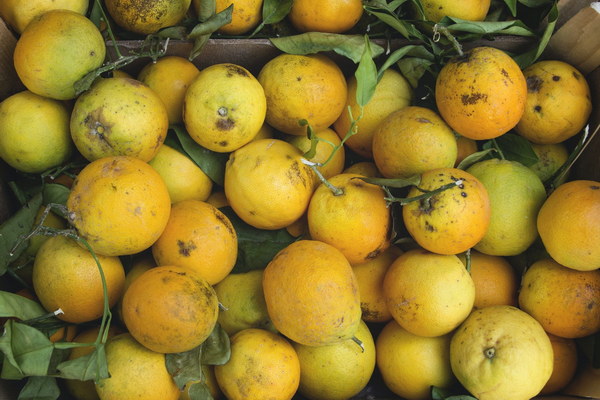Breathing Easy How Cultivating Mushrooms at Home Can Benefit Your Lungs
In recent years, the popularity of indoor gardening has surged, and one unique trend has emerged – growing mushrooms at home. While many may view this hobby as merely a way to add a touch of nature to their living spaces, the benefits of cultivating mushrooms extend far beyond aesthetic appeal. One of the most surprising advantages is the positive impact it can have on your respiratory health. In this article, we will explore how keeping mushrooms in your home can potentially improve your lung function and overall respiratory well-being.

Mushrooms are fungi, which means they require a different set of conditions compared to traditional plants. This unique environment can actually contribute to better indoor air quality, which is crucial for maintaining healthy lungs. Here's a closer look at how cultivating mushrooms at home can benefit your respiratory system:
1. Improved Indoor Air Quality
One of the primary reasons why mushrooms can be beneficial for your lungs is their ability to improve indoor air quality. Unlike many plants, mushrooms do not require a lot of light and can thrive in low-light conditions. This makes them an ideal choice for indoor gardens. As they grow, mushrooms release oxygen and absorb carbon dioxide, which can help reduce the levels of indoor air pollutants such as formaldehyde, benzene, and ammonia.
These pollutants are often found in household products, furniture, and building materials, and they can have a detrimental effect on respiratory health. By cultivating mushrooms, you can create a cleaner, healthier indoor environment, which can lead to reduced symptoms of respiratory conditions such as asthma, allergies, and bronchitis.
2. Increased Humidity
Mushrooms require a high level of humidity to grow, typically between 70-80%. By maintaining this humidity level in your home, you can help create a more comfortable environment for your lungs. Dry air can irritate the respiratory system, leading to symptoms such as coughing, sneezing, and a sore throat. In contrast, a humidified environment can help alleviate these symptoms and make breathing easier for those with respiratory conditions.
3. Biofiltering Properties
Mushrooms have a remarkable ability to filter out harmful substances from the air. Certain species, such as the oyster mushroom (Pleurotus ostreatus), have been shown to effectively remove benzene, a known carcinogen, from the air. By growing these mushrooms in your home, you can create a natural biofilter that helps purify the air and reduce your exposure to harmful pollutants.
4. Mental Health Benefits
While not directly related to lung health, the mental health benefits of cultivating mushrooms at home can indirectly contribute to better respiratory function. Gardening, in general, has been shown to reduce stress, anxiety, and depression. These mental health improvements can lead to better overall health, including respiratory health. By nurturing your mushrooms, you may find yourself more relaxed and focused, which can, in turn, make it easier to breathe.
5. Encouraging a Connection with Nature
Indoor mushroom cultivation can also foster a deeper connection with nature. By observing the growth process of your mushrooms, you may develop a greater appreciation for the natural world and the delicate balance it requires to thrive. This connection can lead to a more mindful approach to life, including better care for your health and well-being.
In conclusion, cultivating mushrooms at home can offer a variety of benefits for your respiratory health. By improving indoor air quality, increasing humidity, providing biofiltering properties, and promoting mental well-being, mushrooms can be a valuable addition to your indoor garden. So, if you're looking for a unique way to enhance your lung function and overall health, consider giving mushroom cultivation a try. Your lungs will thank you.









